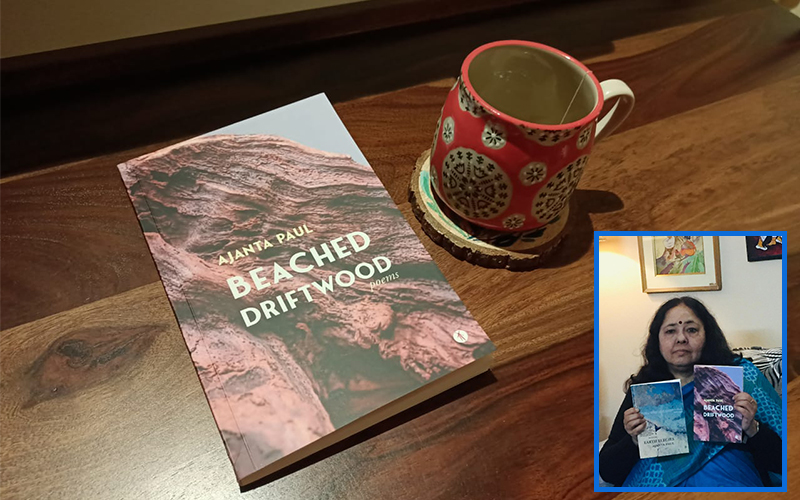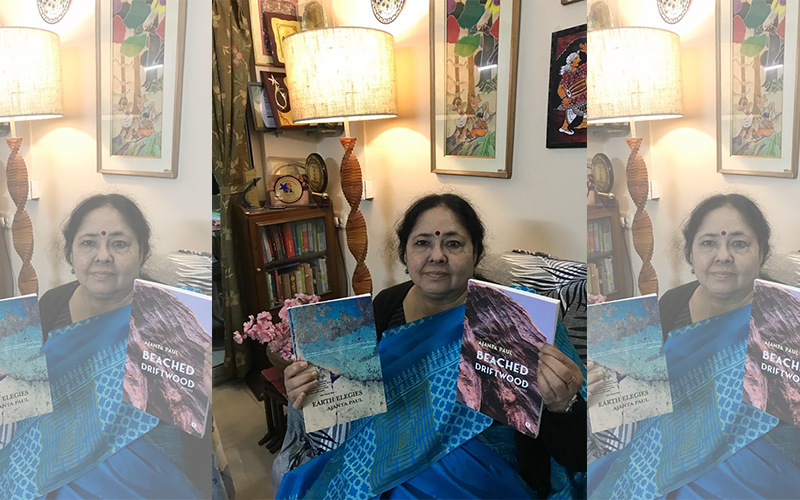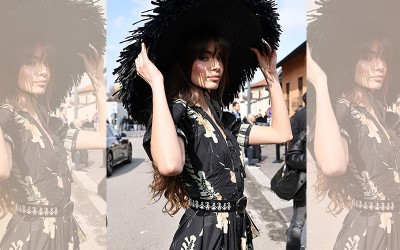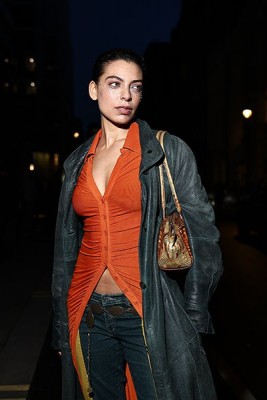 Poetry
Poetry
I did not consciously set out to write ecocritical poems, says poet-academic Ajanta Paul
Dr Ajanta Paul is a widely published poet, short story writer and literary critic. Currently, the Principal at Women's Christian College, Kolkata, India, she is a Pushcart nominee, and has been published in literary journals, including the Spadina Literary Review, The Pangolin Review, Offcourse, The Statesman, The Wild Word, Verse-Virtual, Setu, Kitaab, The Punch Magazine and Lothlorien Poetry Journal.
Her most recent anthologies of poetry, Beached Driftwood: 75 Poems and Earth Elegies, a book of ecocritical poems, were published in December 2023 and January 2024 respectively and will see their formal launches at the Kolkata International Book Fair, 2024. Dr Paul says, although poetry has niche readership, the digital age has definitely not sounded its death knell. Rather, it has offered re-invented platforms for its discussion and propagation. IBNS correspondent Supriyo Hazra caught up with her on the eve of her first book launch on January 22.
You just had back-to-back unveilings of two anthologies of poetry at the Kolkata International Book Fair. Please walk us through your literary career – a kind of a timeline tracing your entire journey and evolution as a poet.
Well, I began writing poetry in my youth, with some of the pieces having been published in Youth Times and The Telegraph Colour Magazine. Thereafter, my attention was claimed largely by critical/academic writings, and I moved away from poetry, except for the occasional piece of poetic prose. It's in the last ten years, or so, that I have returned to my first love. A volume of poetic plays - The Eternal Journey was published by Salesian College Publications in 2013. From the Singing Bowl of the Soul: Fifty Poems was published in 2023 by Setu, Pittsburgh. And recently I had two back to back releases, as you say. In December, 2023 Beached Driftwood: 75 Poemswas published by Hawakal Publishers, and in January this year Earth Elegies, a book of ecocritical poems was brought out by Penprints Publications.
Your book of fiction, a compilation of short stories, The Elixir Maker & Other Stories, was published in 2018. But you seem to be more inclined towards poetry. Any particular reasons?
I feel poems are easier to write, being slighter in structure, and requiring its truth, or aesthetic integrity to be sustained for that brief moment of its physical being. They can be composed on the go, on the backs of envelopes or any scrap of paper when the inspiration seizes you. Fiction, on the other hand, requires more time, attention and careful crafting, and even after such an investment it may not attract the attention it merits.
Tell us a bit about these two new anthologies – Beached Driftwood and Earth Elegies. What sets them apart from each other? What inspired you to write each? What message are you conveying through each?
Both Beached Driftwood and Earth Elegies have, more or less, the same range of genres and styles, moving freely between the impassioned lyric, the ironical monologue or the improvised villanelle. However, while the former engages with a variety of themes, Earth Elegies is exclusively focused on the environment, and the crisis that it's facing. It's not that I consciously set out to write eco-poetry, but I realized at a certain point, that a great many of the poems in my notebook had to do, in some way or the other, with the ecology, and that's when it struck me that I could bring out a separate book of ecocritical poems.
Apart from being a prolific writer and poet, you are deeply into academics, heading a leading girls’ college in Kolkata. How do you balance such a busy and demanding profession with your literary pursuits?
I don't necessarily see administration and writing as occupational binaries, at variance with each other. Though intrinsically different they can be complementary activities, too, that are mutually reinforcing, the one dovetailing into the other in a more or less seamless extension. Even as art and life may equably co-exist, the cultivation of the creative temper can bring a calmness of spirit to an otherwise fraught job. And, definitely, it's a luxury to escape into creative flights now and then to recharge one's battery.
What sets a poet apart from a fiction writer? How different are the creative sensibilities, or are they?
Let me address the second part of the question, first. The poetic sensibility, deeply imaginative, sees poetry everywhere. It configures visions from the slightest cerebral or sensory suggestions. Poetry becomes a way of seeing, and in a sense, more than seeing, as it often affords insights and epiphanies out of proportion to its materials. The sensibility of the fiction writer, on the other hand, does not always teeter on the brink of an awakening, not being called upon to exemplify the intensity of vision associated with poetry. The difference lies not in kind but in degree.
Now, to return to the first part of the question, I think it's the poet's relationship with language that sets him apart. Language is a site that both resists and reaches out. It is the writer's native soil where he feels most at home even as it is that magic portal which admits him into another world. How he resolves the contradictions in his attitude to language is key to an understanding of his poetic persona. Moreover, the language of poetry is also a kind of music, replete with pitch and tone. How the poet exploits this aural quality for best effect is, what I feel, sets the poet apart from the fiction writer.

Which writers and poets did you admire while growing up and why? Have they influenced your literary sensibilities in any way?
Brought up in a Bengali household I was naturally exposed to some of the great literary masters in the language. Then there were the British writers. Later, I came across the European ones in translation; American poets and novelists such as Emily Dickinson, Sylvia Plath and Ernest Hemingway; African American ones like Alice Walker, Toni Morrison and Gloria Naylor; not to mention the Indian writers in English such as Jayanta Mahapatra, Salman Rushdie, Vikram Seth, Arundhati Roy and others. More than any particular writer, it was generally the world of books which admitted me into a parallel realm of vicarious experience, stimulating and sustaining me at the same time.
How would you describe yourself as a poet – any particular genre that you could belong to? Do you experiment with various forms of poetry or have you tried any new technique with your poetry?
In terms of formal genre I would associate myself with modern poetry with its free verse, terse imagery and modulated use of voice. I'm not overly experimental though am interested in harnessing sound effects through the occasional rhyme, resonance and rhetorical figure which contribute to the auditory impact of a poem. From the point of view of sensibility I would say I share an affiliation with the post-colonial writer and the anxieties thereof. At the same time, being a member of several virtual communities of poets (predominantly American) I may have been unconsciously influenced by the apparent sparseness of the North American literary utterance, and its penchant for an understated evocation of truth.
How well is poetry received amongst readers today, in this highly digital age where social media has truly narrowed our attention span?
Poetry is written, published, bought, read, shared and promoted by a handful of like-minded people. It has a niche readership, and does not sell. That said, it continues to be important which explains the number of poetry books published every year despite the lack of a corresponding demand, not to mention the literary criticism generated by the same. The digital age, far from sounding the death knell for poetry, has in fact, reinvented modes of its propagation through online literary journals, virtual communities, open mics, poetry slams and Instagram accounts. Poetry is the artful intelligence of our times.
Which is your favourite piece of work from amongst your portfolio and why?
I'm afraid I don't have one, and since I keep revising my writings compulsively I usually end up disliking what I had written earlier.
You will be a participant at this year’s Kolkata Literary Meet (KLM 2024). What are your feelings on this?
I'm happy and proud to be a panelist at the Poetry Medley session of KLM to be held later this month at the Victoria Memorial. Tata Steel Kolkata Literary Meet is a prestigious event, one of the city's annual dates with literature and culture, and I'm looking forward to participating in it.
Tell us about your future plans for publication and literary pursuits. Would you return to fiction yet again in future?
Of course, fiction is a serious contender for poetry, as far as I'm concerned. I did not leave fiction, as it happens. It's just that several volumes of poetry came to be published serendipitously around the same time. An edited anthology of English short stories by contemporary Indian writers is on the anvil. Plus, I have a book of short stories ready for publication.
What is your message to your readers and aspiring poets, in this digital era?
Read till you drop, for books (in whatever format you use) are amongst those few things in life which will lift you up.
Support Our Journalism
We cannot do without you.. your contribution supports unbiased journalism
IBNS is not driven by any ism- not wokeism, not racism, not skewed secularism, not hyper right-wing or left liberal ideals, nor by any hardline religious beliefs or hyper nationalism. We want to serve you good old objective news, as they are. We do not judge or preach. We let people decide for themselves. We only try to present factual and well-sourced news.







